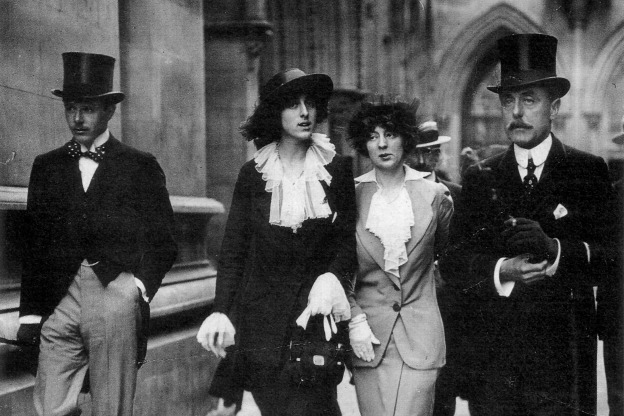
Churchill Quotes: Mooing Dolefully; Fight When You Can Win
“Mooing dolefully”
Routinely since the 1990s, hostile tyrants and others dismiss overtures from American administrations, saying they see no change in policy under the latest U.S. administration. “They chant the slogan of change but no change is seen in practice,” was a typical line.
The last thing we want is a fight, the U.S. often replies. Often we add that we want to engage and improve decades of strained relations.
This reminded me of Harold Nicolson’s letter to his wife, Vita Sackville-West, 1 March 1938 (Nicolson Diaries, I, 328). Nicolson was not yet a backer of Churchill in the debate over policy toward Germany. He hoped reason and compromise would prevail:
I went to such an odd luncheon yesterday. It is called “The Focus Group,” and is one of Winston’s things. It consists of Winston, Norman Angell, Wickham Steed, Walter Layton, Robert Cecil, Violet Bonham-Carter, Clynes and some other of the Labour people.
I was made to make a speech without any notice and was a trifle embarrassed. But one gets a thick skin and an easy habit about these things and my speech was rather a hit.
Winston was enormously witty. He spoke of “this great country nosing from door to door like a cow that has lost its calf, mooing dolefully, now in Berlin and now in Rome—when all the time the tiger and the alligator wait for its undoing.”
Don’t be worried, my darling. I am not going to become one of the Winston brigade. My leaders are Anthony [Eden] and Malcolm [MacDonald].
Harold Nicolson came round soon enough. After Churchill’s broadcast, “The War of the Unknown Warriors,” on 14 July 1940, he wrote Vita:
I clapped when it was over. But really he has got guts, that man. Imagine the effect of his speech in the Empire and the USA.
I felt a great army of men and women of resolution watching for the fight. And I felt that all the silly people were but black-beetles scurrying into holes.
When to fight?
Along those lines a reader writes: “I remember a quip: ‘When will we fight? When we have no hope.’ Can you help me identify the source?”
That line doesn’t track among Churchill’s 20 million published words. He did voice similar thooughts. You may be thinking of this one:
[If] you will not fight for the right when you can easily win without bloodshed; if you will not fight when your victory will be sure and not too costly; you may come to the moment when you will have to fight with all the odds against you and only a precarious chance of survival.
There may even be a worse case. You may have to fight when there is no hope of victory, because it is better to perish than to live as slaves. (The Gathering Storm, London, 1948, 272.)
Churchill was writing about the belated British guarantee to Poland in early 1939. He held this far too late: “decision at last, taken at the worst possible moment….”
The time to act had been a year earlier, when Hitler at Munich had demanded the Czech Sudetenland. Poland was guaranteed only after Hitler had invaded the rump of Czechoslovakia in March 1939, which he had promised to respect.
Further reading
“Crocodiles: Churchill’s Animal Analogies,” 2022.
Review of “Munich: The Edge of War,” with Jeremy Irons as Chamberlain, 2023.
“Munich Reflections: Peace for ‘A’ Time and the Case for Resistance,” 2022.






